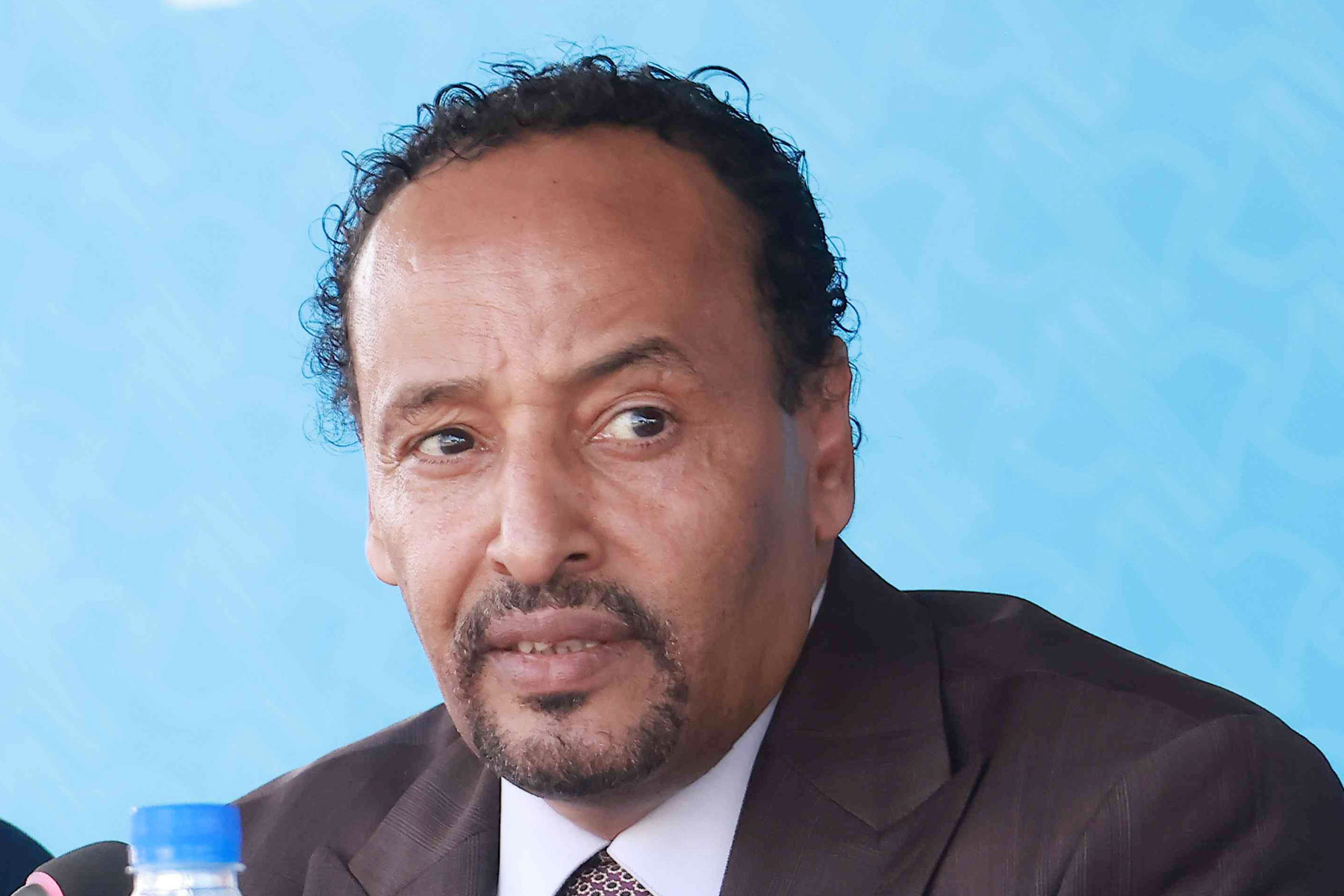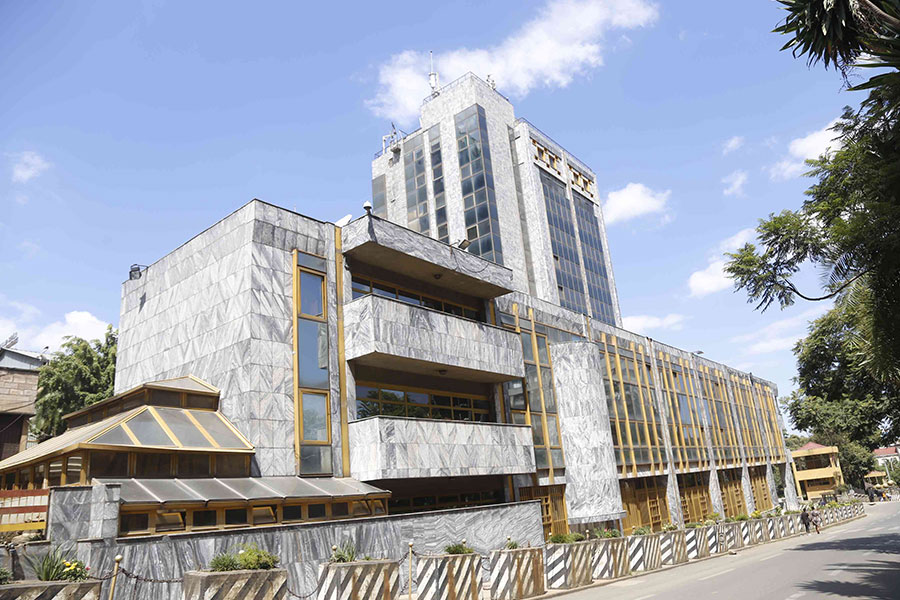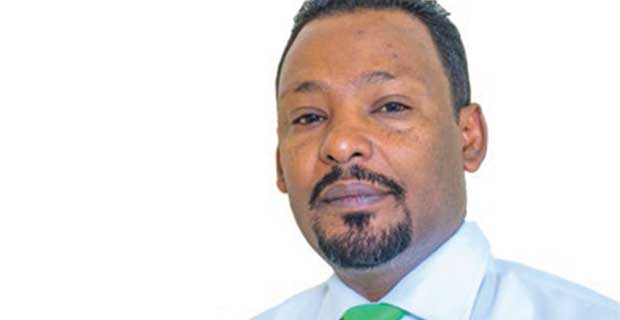
Fortune News | Jul 03,2021
Oct 8 , 2022.
It is fitting that the financial sector and the monetary regime are riddled with reforms, the former more than the latter. The most recent could be establishing a federal regulatory agency separate from the National Bank of Ethiopia (NBE) that oversees the insurance industry. It is a move industry leaders have been urging for a while. The treasury bill market has also been floated, although this has been less relevant than it should be in the absence of a vibrant secondary market.
The reform efforts of Prime Minister Abiy Ahmed’s (PhD) administration, and likely his legacy on the economic front, in contention with liberalising the telecom sector, are opening the financial sector for foreign capital and establishing secondary capital markets. These are all overdue reforms. Hopefully, they will be complemented by a more dynamic exchange regime and, eventually, the liberalisation of the capital account.
There are both push and pull factors for the rapidity of these reform initiatives over the past four years. Unleashing the gains that have been forgone for decades due to protectionism, which has limited economic competitiveness and financialisation, can be seen as a driving conviction behind the reforms. Indeed, outdated protectionist impulse in policymaking has contributed to low rates of banked population, constrained access to credit and insignificant insurance penetration.
The push factors are as much assertive. An alarming external debt burden and stubborn inflationary pressure in the economy forced policymakers to search for alternative and more cautious means of deficit financing, such as T-bill sales. The leftist ideological legacy of a half-century and limited resources to put the private sector on the lead required unleashing the potential of capital markets and the financial sectors. Private capital formation has declined, dropping by 10 percentage points from 38.4pc five years ago.
The macroeconomic team chaired by the Prime Minister and under the clasp of his senior economic policy advisor, Girma Birru, is confronted with a combination of a perfect storm and wicked problems. Wicked because the country is devastated due to a war of choice; and stormy because the economy is furrowed by forex crunch, external debt and hyperinflation. Reversing the course with a series of reforms became a necessity.
But reforms on paper need to be complemented by those on the ground, through institution building. It can make no sense to change laws and reorient policies if they are not worth more than the pieces of paper written on and the inks used. It is more valid for the monetary policy regime and how the financial sector is regulated. In the absence of transparent and accountable enforcement, the momentum is bound to fade, or reforms become captives of corruption and rent-seeking. The backlash against failure could mean returning to square one in a country whose elites are instinctively protectionist and conservative on socio-economic affairs.
Institution-building in finance and monetary policy reforms concerns the central bank more than any other institution. Despite the liberalisation and privatisation efforts for over two decades, the regulatory body that is meant to oversee it all sticks out like a sore thumb. Successive governors have been passive, passing knee-jerk directives to respond to market dynamics they should have anticipated. They are often untransparent, unwilling to engage over policies or give guidance; and highly politicised, putting partisan politics before the economy’s well-being.
Yet, the reforms the central bank needs to undertake have been evident for a while.
The central bank needs to professionalise itself to manage monetary policy issues, tame inflation adequately, oversees the banking industry, and the capital market in the future. Retarding any such efforts, more than any other of its shortcomings, is the inability to become autonomous of partisan politics. This is nowhere as obvious as the central bank’s aiding and abetting of the federal government’s deficit financing through monetary expansion - at an alarmingly increasing rate recently.
It would seem that headline inflation over 30pc would prompt the Governor, Yinager Dessie (PhD), to think twice about expanding the money supply in the economy. Unlikely.
Broad money supply exploded to 1.58 trillion Br by the third quarter of the past fiscal year, growing by 25.5pc (of the GDP) over the same period in the previous year. Judging by the IMF experts’ advice for prudence, the central bank injected 8.5pc (of the GDP) more cash into the economy. This is like pouring fuel on the fire. But the central bank went a step further, halving reserve requirement even when its latest quarterly report (half a year late, as expected) showed that banks have consistently shown excess reserves, reaching 37 billion Birr.
This was supposed to be a time to tighten the belt. The Governor could have supported the public, providing caution from inflation by increasing the interest rate on deposits. In that way, he could have encouraged national savings - on a consistent decline from 24pc of the GDP four years ago to 18.9pc last year - and could have made the cost of borrowing a little more expensive.
Not doing much in the face of economic calamities suggests either incompetence or political meddling – it is not clear which is worse.
Some institutional reforms could address this and make the central bank worthy of the economic policy reforms being undertaken. Depoliticising the central bank can go a long way as a starter.
The central bank could be made accountable to federal legislators instead of the Prime Minister. Its governors could be held responsible for abdicating duties to “maintain a stable rate of price[s], and exchange” and “foster a healthy financial system,” according to a proclamation that officiated the central bank.
The selection for governorship should also be more finicky. A person heading the central bank should be barred from affiliations to an organised political party - whether governing or in the opposition. Ethiopia’s central bank governors are no different from their peers in the ministries of Finance and National Planning in their belongingness to the top echelons of the ruling parties. So did Governor Yinager run in last year’s general elections under the incumbent’s ticket.
Candidates for such an astute position vital to the national economy should be examined through prior exposure to monetary policymaking to ensure that an able technocrat gets the top job.
None of the above would mean that the central bank becomes an autonomous agency striving for professionalism the following day. Supreme Court justices or election board members are only nominated by the Prime Minister but approved by Parliament, to which they are answerable. They are living testimonies that charging guard at the top has never been a guarantee to shield constitutional institutions created for checks and balances from the influences of the all-too-powerful executive body.
A few legal and procedural safeguards could be put in place. Still, it will be impossible for any central bank to stay professional in the face of bullying and an overwhelming executive body. Parliament lacks political diversity, or the legislative house is reduced to rubber stamp duty. In Ethiopia’s case, it remains to be a mix of both.
A good lesson for what not to do can be had from Turkey, whose central bank has been autonomous and credible - well, until recently.
A decade ago, it launched a three-year inflation-targeting policy, restructured itself and strived for policy predictability through effective communications. The central bank stabilised inflation for a decade before President Recep Erdogan decided to play a more hands-on role in monetary policymaking. His strange take on interest rate policy saw him sacking central bank governors who declined to accept the idea of cutting rates when inflation was going up.
Turkey’s headline inflation is now at 83pc, much worse than Ethiopia’s, which says a great deal.
If Ethiopia’s current administration wants to make economic reforms work, especially on the monetary policy front, it must allow the central bank to be autonomous of partisan politics and professional. The alternative can only be an exercise in futility or, worse, a backlash toward statism.
PUBLISHED ON
Oct 08,2022 [ VOL
23 , NO
1171]

Fortune News | Jul 03,2021

Fortune News | Apr 20,2024

Radar | Dec 16,2023

Addis Fortune | Feb 14,2022

Radar | Jun 29,2025

Fortune News | May 24,2025

Fortune News | Mar 19,2022

Sponsored Contents | Jul 05,2021

Fortune News | Aug 24,2019

Fortune News | Jan 30,2021

Photo Gallery | 173125 Views | May 06,2019

Photo Gallery | 163346 Views | Apr 26,2019

Photo Gallery | 153269 Views | Oct 06,2021

My Opinion | 136469 Views | Aug 14,2021

Dec 22 , 2024 . By TIZITA SHEWAFERAW
Charged with transforming colossal state-owned enterprises into modern and competitiv...

Aug 18 , 2024 . By AKSAH ITALO
Although predictable Yonas Zerihun's job in the ride-hailing service is not immune to...

Jul 28 , 2024 . By TIZITA SHEWAFERAW
Unhabitual, perhaps too many, Samuel Gebreyohannes, 38, used to occasionally enjoy a couple of beers at breakfast. However, he recently swit...

Jul 13 , 2024 . By AKSAH ITALO
Investors who rely on tractors, trucks, and field vehicles for commuting, transporting commodities, and f...

Oct 12 , 2025 . By BEZAWIT HULUAGER
A sweeping change in the vehicle licensing system has tilted the scales in favour of...

Oct 12 , 2025 . By NAHOM AYELE
A simmering dispute between the legal profession and the federal government is nearin...

Oct 12 , 2025 . By NAHOM AYELE
A violent storm that ripped through the flower belt of Bishoftu (Debreziet), 45Km eas...

Oct 12 , 2025 . By BEZAWIT HULUAGER
An evolving joint venture between Etihad Airways and Ethiopian Airlines is shaping up...